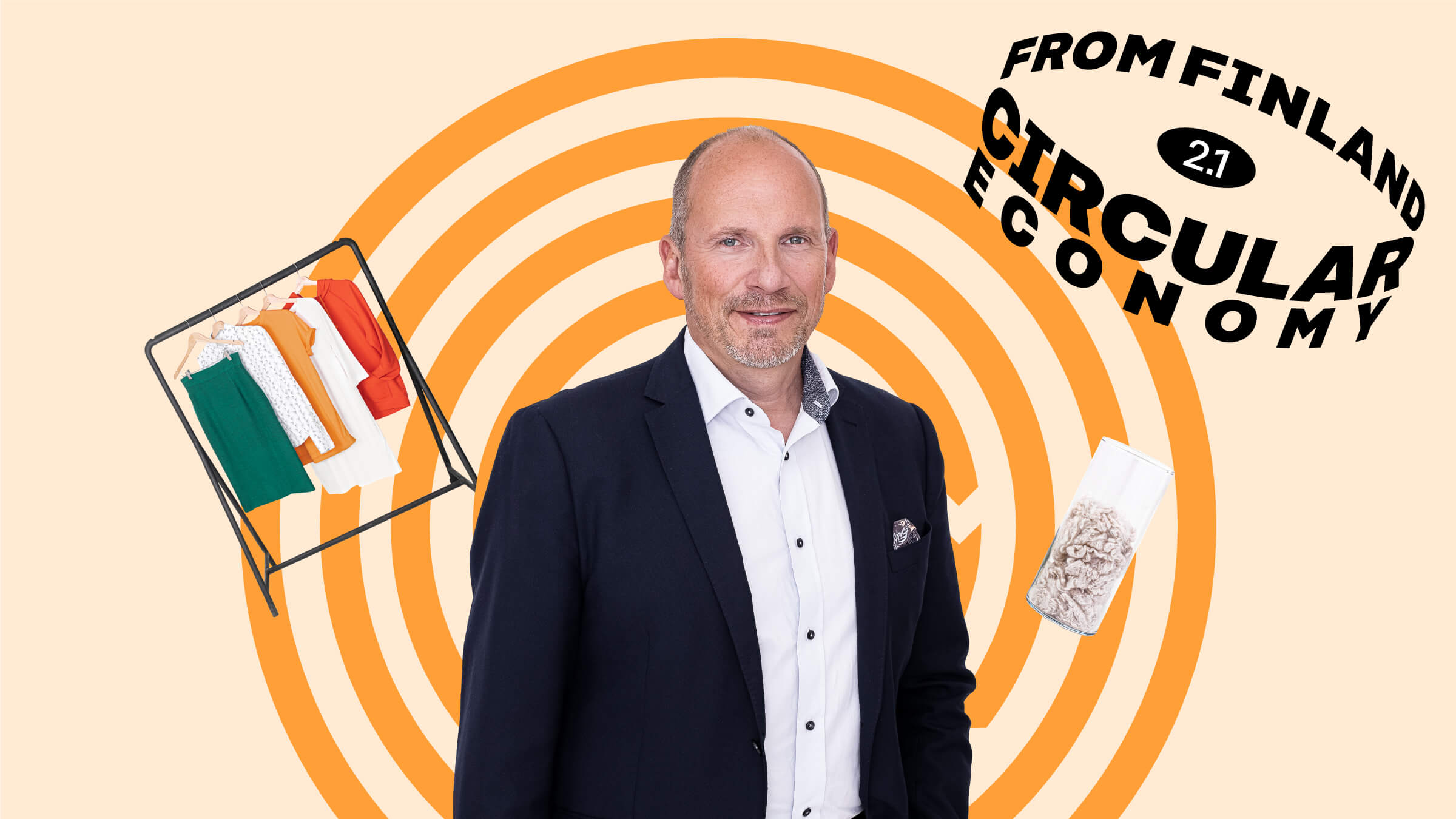“Professor Ali Harlin and his colleagues at the VTT Technical Research Centre of Finland started researching cellulose carbamate technology in the 1990s with the intention of finding a way to make new textile fibre from cellulose, and specifically from the cellulose in discarded textiles. The idea itself was not that new as the search for an alternative for viscose had begun in the United States as early as the 1930s.
The idea for the Infinited Fiber Company was born in 2015 when Harlin and I decided to commercialise the technology developed by the researchers. The technology can use cotton-rich textile waste and other cellulose-based waste streams, such as paper and straw, to create new textile fibre. This enables materials that are already in circulation to be recovered and the amount of generated waste to be reduced.
The making of the Infinna fibre is magical! The material changes its form several times during the manufacturing process. The textiles we receive have already been shredded, and buttons and other detachable parts have been removed. First, we remove any polyester and the different dyes and chemicals that have been used to treat the original textiles.
The pure raw material, cellulose, then goes into a carbamation process in which it reacts with urea. The resulting cellulose carbamate powder can be stored for up to two years. This powder is dissolved into a honey-like liquid, and this liquid cellulose is crystallised into new fibres using what is known as a wet spinning method.
We sell the technology licence for our patented Infinna manufacturing process to fibre producers. In other words, we offer fibre manufacturers a way to expand their product portfolio by adding our regenerated Infinna fibre to their product range. We are also in constant discussions with different brands in the textile sector. They are looking for sustainable solutions that will help them adhere to the circularity commitments they have made.
We are now preparing to build a flagship factory in Finland to respond to the high demand for Infinna from global fashion brands. In the long term, we of course cannot manufacture the fibre for the needs of the whole textile industry ourselves, and will also focus on the licensing and product development of our technology.
Our flagship factory should be up and running in 2024. After that, our circular textile fibre Infinna, which looks and feels as soft and natural as cotton, will definitely be found in more and more wardrobes.”










Suosittelemme
Vielä yksi